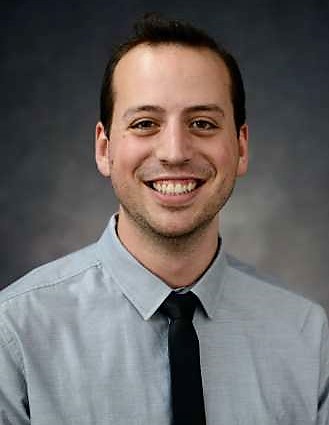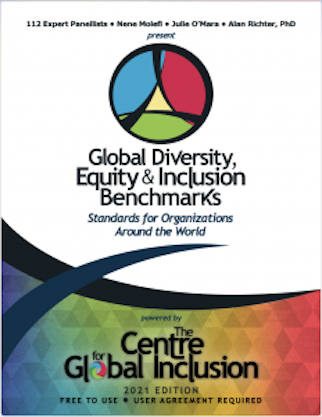
As Pride Month begins, it is important to celebrate the fact that LBGTQ2SIA+ communities have led the fight for equity, diversity and inclusion (EDI) for a long time, says a University of Guelph EDI expert.
Prof. Thomas Sasso, a professor in the Department of Management, studies the experiences of diverse and marginalized populations across industries and sectors, especially LBGTQ2SIA+ communities.
Those communities have only made gains through consistently fighting for their cause and are an example of courage and persistence, he said.
“EDI work is not new, and it is built upon the hard work of equity-seeking community organizers who fought for change,” said Sasso, who teaches organizational behaviour, human resource management and leadership.
“Queer communities, particularly queer communities of colour, have been advancing equity, diversity and inclusion at personal, organizational and societal levels long before its more recent popularization. We need to know and appreciate the history that has led us to where we are.”
Momentum is building to instill EDI in all areas of society, but progress is slow, said Sasso, and easing up could lead to regression into harmful patterns.
Over the past year, he served as an expert panellist for the Centre for Global Inclusion. Sasso was among 112 international experts brought together from various sectors, languages and regions to revise the Global Diversity, Equity and Inclusion Benchmarks (GDEIB) for 2021.
The benchmarks are intended to create more equitable and better-functioning organizations in education, business and government as well as community organizations and NGOs around the world, while cultivating trust, acceptance, and physical and psychological safety.
U of G’s Gordon S. Lang School of Business and Economics is helping to plan the virtual Canadian launch of the GDEIB, scheduled for June 15. A free webinar is open to anyone wanting to learn more about using the benchmarks. Register here.
“It was an exceptional honour to work alongside some of the world’s EDI leaders as we revised the benchmarks for 2021, with a shared goal to determine the best practices to engage with and embed EDI into daily organizational practices and structures,” Sasso said.
He said the document, released in April, enables organizations to assess current practices and identify EDI goals.
Past efforts to focus on EDI often languished as organizations lacked resources and addressed other priorities. Current momentum includes a growing demand for EDI professionals. These positions were typically eliminated in times of economic uncertainty, he said, but now there is a better understanding of their importance in working toward fair and lasting changes.
“In the current movement, we are seeing more efforts addressing systemic inequities and tackling things with an intersectional awareness.”
Awareness has also grown about the multiple forms of discrimination and its negative effects, especially for marginalized individuals and groups, Sasso added.
“At the societal and organizational levels, this is a massive gain. Our audiences are specially asking about intersectionality and equity. People might not understand all of the concepts and terms, but they are open to learning in ways that are refreshing.”
Still, this is no time to be complacent.
“We are seeing resistance efforts towards EDI creeping up as individuals start to feel threatened that we are talking about systemic privilege and wanting to change the way systems operate so that we prioritize equity. Reactance isn’t new, but we need organizational leaders ready to educate their followers and enforce organizational values and initiatives that support EDI.”
Earlier, as a graduate student in industrial and organization psychology at U of G, Sasso co-founded U of G’s Sexual and Gender Diversity Research Lab with graduate student Dr. Amy Ellard-Gray.
The lab offers a supportive, interdisciplinary environment that invites people to learn about inclusive practices and methodologies for community-engaged research with LBGTQ2SIA+ communities on sexuality, gender and individual diversity.
Jasmine Singh recently used the lab for her undergraduate thesis, supervised by Sasso, on the disclosure experiences of queer South Asian women.
“The support and mentorship of faculty has made projects like mine possible,” said Singh. “As a person of colour studying at U of G, I find it is extremely important to have this support because our pursuits of higher education are impacted by privileged systems that do not foster POC growth.”
Her project uncovered systemic issues facing her study subjects.
“The prevalence of discriminatory communities that create arbitrary rules of belonging severely limit the ability of queer South Asian women to access supportive social networks and resources. The work requires dynamic solutions that address the dominance of heterosexism and white privilege.”
Without continued vigilance, organizations and people quickly slip into “performative” EDI or deprioritize their efforts, said Sasso. “We live in a societal context that is largely threatened by EDI.”
Equity means paying people a living wage, ensuring equal access to quality education and health care, and removing barriers to opportunity, he said – all ensuring that “everyone is able to have access and engage in all elements of society and work.”
Contact:
Prof. Thomas Sasso
tsasso@uoguelph.ca